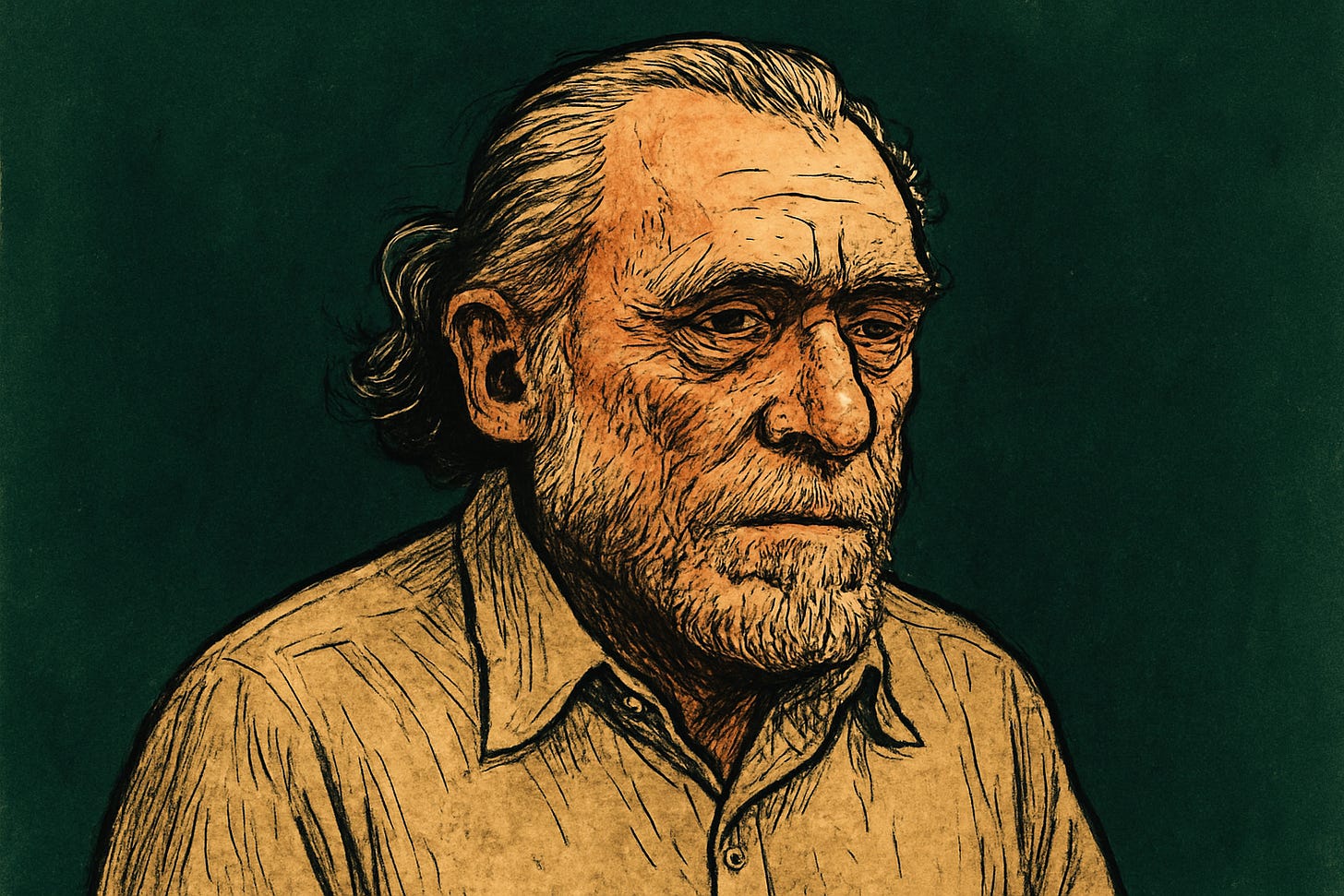Do What You Love — But First, Survive!
What Bukowski Knew About Work and Art
Charles Bukowski wasn’t the polished kind of writer. He was the kind who smelled of beer, cigarettes, and truth. He wrote about factory shifts, failed relationships, hangovers, and hope; all with the same unflinching honesty.
In a world obsessed with passion and purpose, Bukowski reminds us that doing what you love is rarely graceful. It’s a struggle; sometimes the most worthwhile one.
His most famous advice came wrapped in a warning: “Find what you love and let it kill you.”
It sounds reckless, but it’s not about destruction; it’s about devotion. Bukowski understood that real passion isn’t romantic; it’s relentless.
It doesn’t always pay bills or win applause. It asks for everything and guarantees nothing.
We live in an age that tells us to “do what we love” as if it’s simple. But what Bukowski shows us is that it’s work, not the glamorous kind, but the lonely, grinding, unthanked kind.
He spent decades as a postal worker before his first major book deal. He wrote at night, drunk and tired, knowing no one might ever read him.
He didn’t wait for inspiration. He wrote because not writing hurt more.
That’s the truth most people skip when they talk about passion. Doing what you love won’t always feel good. In fact, it often feels like failure; repeated, private, endless.
The artist, the builder, the dreamer; they all share this invisible ache: the pull toward something meaningful that doesn’t always reward them back.
Bukowski’s life was a tug-of-war between necessity and meaning. He knew what it was to wake up for survival, not purpose. And yet, he never abandoned the urge to create. That’s what makes his story powerful — not that he succeeded, but that he kept going when success seemed absurd.
So how do we hold both the struggle and the love, without losing ourselves?
First, by accepting that struggle is part of the story, not a sign we are failing.
Bukowski didn’t see pain as proof he was on the wrong path; he saw it as proof he was alive. The friction between who we are and what we long to do is where the real art happens.
Second, by refusing to wait for permission.
Bukowski wrote when no one cared. He didn’t need validation; he needed release. Doing what you love isn’t about being chosen; it’s about choosing anyway.
And finally, by finding joy in the process, not the applause.
The act itself, the writing, the painting, the building, is the point. Bukowski wasn’t chasing fame; he was chasing truth.
Maybe that’s what “doing what you love” really means: not a dream job or a perfect life, but the courage to keep showing up for what makes you feel most alive, even when it doesn’t love you back.
Thank you for reading. Your time and attention mean everything. This essay is free, but you can always buy me coffee or visit my shop to support my work. For more thoughts and short notes, please find me on Instagram.



